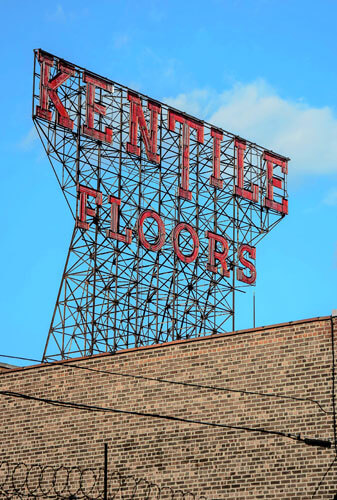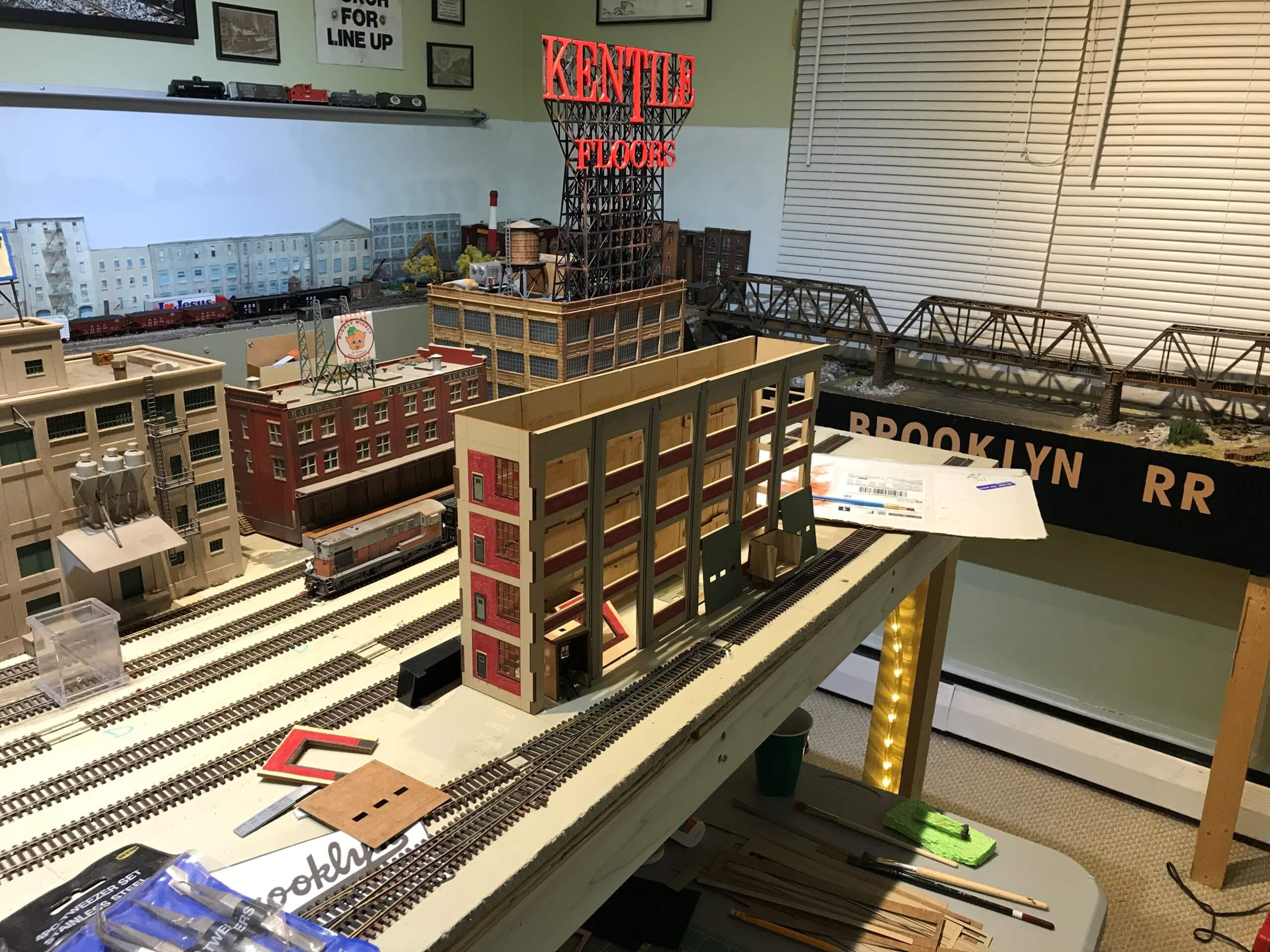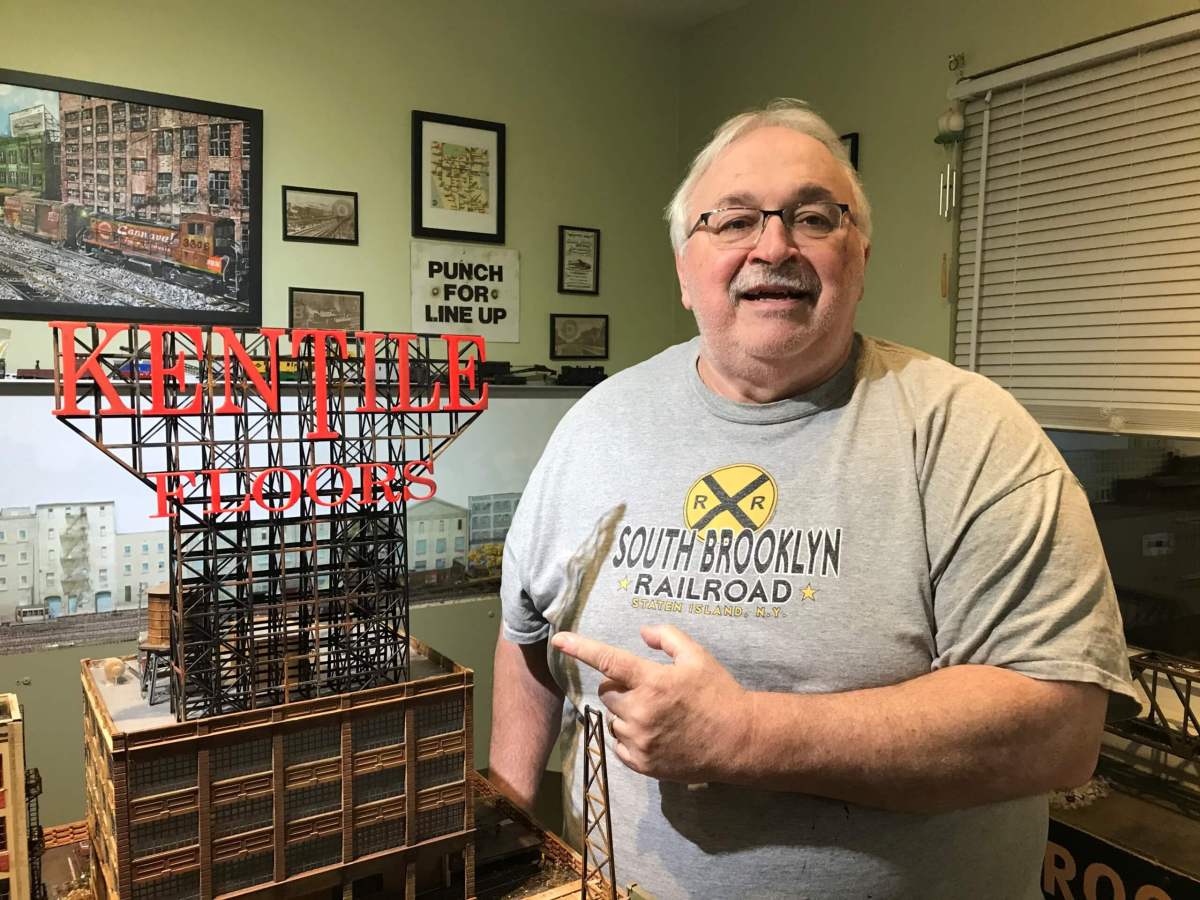A former subway operator has painstakingly recreated a model of industrial rail yards and buildings at Gowanus and Sunset Park, including a custom 3-D printed replica of the iconic former Kentile Floors sign!
“It’s a part of Brooklyn I grew up in as a kid,” said 65-year-old Park Slope native Bill Graham, who now lives in Staten Island. “The sign immediately invokes a ton of memories.”
The red-lettered sign atop a Second Avenue factory near Ninth Street became a popular subject among area artists after more than half a century as a staple of the Kings County skyline for commuters on the Gowanus Expressway or the F and G lines — but was eventually removed by the building’s owners in 2014 despite fierce opposition from locals.
“You took it for granted, it was there but you never really saw it,” said Graham, who passed the sign as a train operator for 30 years.

The factory started operations in 1898 and cranked out tiles for almost a century, employing more than 400 workers at its peak in the 1960s — including at one point Graham’s father, who worked as a checker there.
The company advertised its goods as easy to install for homeowners, but the product contained the carcinogen asbestos, and the organization filed for bankruptcy in 1992 while facing a rising tide of consumer lawsuits.
Graham included the Kentile Floors’ sign into his room-filling train setup — or layout, in model-making jargon — that was inspired by the South Brooklyn Railroad, a subdivision of NYCT that still runs an industrial freight train operations near 38th Street between Fifth Avenue and the waterfront yards at Second Avenue.
Fellow model train enthusiast, Missourian Miles Hale, 3-D printed the sign for Graham true to scale, 87 times smaller than the original, using schematics from the city’s Department of Buildings.
Graham added some of the local former industrial hubs to his layout, like the Bush Terminal and Union Street’s South Brooklyn Casket Company near the Gowanus Canal, which he showed off on his YouTube channel.
“It’s a compressed selection, it’s just a flavor of Brooklyn,” he said.

The layout — which is set in the gritty 1980s, when Graham would occasionally fill in for workers at the yard — shows Brooklyn’s post-industrial urban decay, such as graffiti, overgrown weeds, rusted corrugated fences, and junk gracing the small-scale buildings.
“It’s what I remember as a kid, graffiti and decay held together by spit and bubblegum,” he said.




















